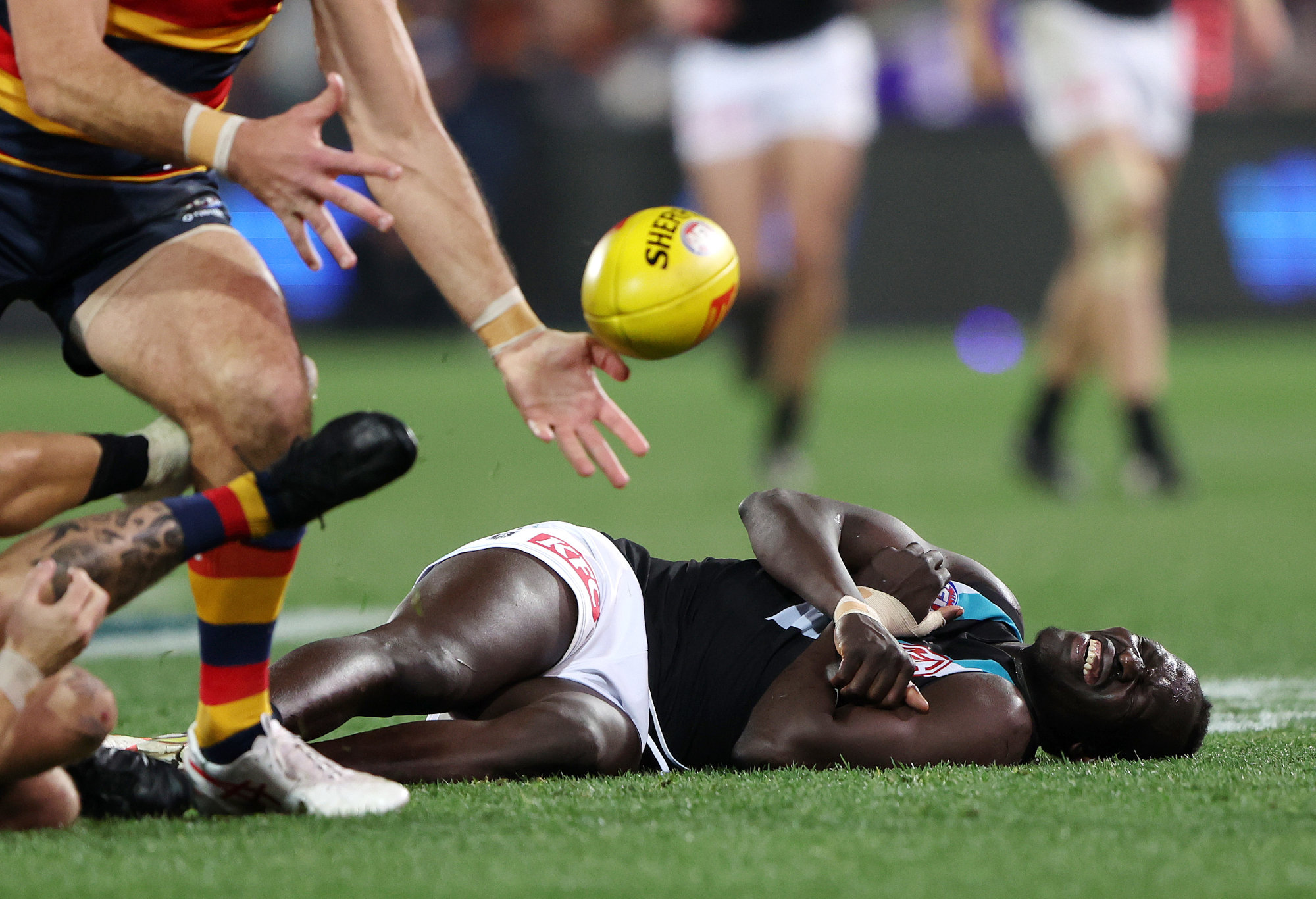We must never accept ignorance as an excuse for negligence when it comes to concussion

We seem to fall for the same nonsense line all the time, and it’s a little ridiculous.
The line goes like this: no doctor would send out a player if he wasn’t completely right to play.
Now please, for goodness sake, don’t misconstrue my words. This isn’t an attempt to criticise the medical community or sew doubt into the hearts and minds of the community around those who take care of us.
But my point is that simply blocking any discussion around past and present mistakes is doing us all absolutely no good on the concussion front.
Here’s the thing, incentive structure usually governs decision making.
This can be conceptualised as something like; even if you are of questionable integrity, if you will be punished financially for doing the wrong thing, then you will do the right thing – whether you care about doing the right thing or not.
This brings me to the issue of AFL club doctors.
Let’s all remember back for a moment to the infamous Jordan Lewis incident against the Western Bulldogs in 2010.
Now, most who talk about that incident acknowledge it was a staggering decision to let him actually return to the field that day.
But this is often followed up by something I find to be the biggest load of garbage you could possibly utter; namely that it happened because we didn’t know as much about concussion back then as we do now.
I do not accept that in 2010, any doctor operating honestly would have allowed that to happen.
If the decision was based purely on player safety, then Lewis very obviously would not have been allowed back on the field.
There would be no sound-minded person in the world, let alone a trained doctor who would’ve looked at Lewis’s splayed limbs and concluded that person is in a fit state to play a physical sport in the next 30 to 60 minutes.
So yes, we know more about concussions now than we did then, but it wasn’t the Stone Age in 2010. One thing we knew, even back then, was that concussion is very bad for a person’s health.
Just as a slight aside, I don’t particularly accept the notion that we didn’t really know about head trauma until the last couple of decades.
We’ve all heard of a multitude of cases where people died of seemingly innocuous headknocks. It should therefore be self-evident that head trauma is an inexact science, but not to be messed with.
So why was Lewis sent back onto the field in 2010? Well obviously because it helped Hawthorn to have him out there.
Yes, yes, I know, they wouldn’t do that. I hear you.
Except, they did do that.
To be clear, there is no defence of doctors who keep doing this kind of thing. People do all kinds of immoral things for money, but putting people in danger to keep their jobs is the act of a scoundrel.
I am not claiming to know the ins and outs of the Lewis case specifically, by the way, it’s possible the coaching staff had the final say, and power wasn’t in the doctor’s hands anyway.
At the end of the day, if AFL clubs can’t be trusted, then something needs to be done.
Last year Port Adelaide was fined $100,000 for breaching AFL rules when they didn’t send Aliir Aliir to get a concussion test after a heavy collision.
At the time, Port were happy to say their club doctor made a mistake. But did he? Or did he not have the power to protect Aliir from danger?
Aliir Aliir. (Photo by Sarah Reed/AFL Photos via Getty Images)
The thing is, it was astoundingly obvious he needed a concussion test for everyone watching, myself included, but he didn’t get one.
They say you should never attribute to malice that which is adequately explained by stupidity. Well, I’m not convinced a qualified doctor could possibly be that stupid.
Last year, former Western Bulldog star Liam Picken launched legal action against his former club and their doctors.
He alleged that he had been sent out onto the field without having recovered from concussions, and even that club doctors had hidden the extent of his head trauma from him.
I’ll reiterate the point: being a doctor doesn’t magically immunise you from ever acting immorally.
We seem to have entered this strange, circular logic, where we occasionally see someone dazed significantly after head contact on an AFL field but stay on the ground, and we use that as proof that they must not be concussed.
Well, you won’t ever find a concussion without testing for it.
All this is to say, the AFL’s decision to place “concussion-spotters” at AFL games is a baby step in the right direction but is not far enough.
For me, there are two obvious solutions, and they shouldn’t necessarily be limited to concussions.
Sports opinion delivered daily
Either all clubs should be assigned doctors whose income is not bound to the club, and who have no loyalty to anything except doing their job properly.
Any doctor showing obvious negligence in allowing a player to play or train when they are not fit to do so should incur severe punishment.
In such cases, when it is found the club pressured the doctor, either directly or by implication through the common idea that ‘we want our good players on the park under every conceivable circumstance, injured or not’.
That club needs to face that kind of punishment that will stop them from ever doing such a thing again.
Player safety is too important. If those entrusted with it are negligent, that power should be taken out of their hands.
